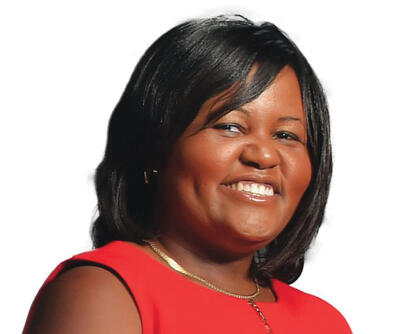Yuan He, an expert in structural biology, has joined Johns Hopkins as the Bloomberg Distinguished Professor of Structural Biophysics and Chromatin Biology. He has appointments in the Department of Biology and the Department of Biophysics in the Krieger School of Arts and Sciences, and he is part of the Epigenome Sciences BDP cluster. He brings to Hopkins unique expertise in the rapidly advancing technology of cryo-electron microscopy. His work integrates cryo-EM with cell biology and emerging tools in artificial intelligence, alongside various biophysical and biochemical techniques, to explore how flaws in the transcription and DNA repair pathways contribute to cancer predisposition and accelerated aging.
Peabody Conservatory Professor Marin Alsop was named a Perspectives Artist for Carnegie Hall's 2025–26 concert season, playing a significant role in the hall's United in Sound: America at 250 festival.
Johns Hopkins University School of Medicine and Johns Hopkins Kimmel Cancer Center researchers Stephen Baylin and Andrew Feinberg have been awarded the 2022–23 Harvey Prize in the field of Science and Technology by Technion – Israel Institute of Technology. Baylin, co-director of the Johns Hopkins Kimmel Cancer Center Genetics and Epigenetics Program, and Feinberg, director of the Johns Hopkins Epigenetics Center in the Institute for Basic Biomedical Sciences and director of the Division of Molecular Medicine in the Department of Medicine, were honored for their pioneering research in epigenetics. Peter Jones, chief scientific officer at the Van Andel Institute, was also a recipient of the 2022–23 prize. The Harvey Prize consists of a cash award of $75,000.

Alicia Wilson, who led community and economic development initiatives at Johns Hopkins from 2019 to 2023, has returned to Hopkins as vice president for civic engagement and opportunity. A widely respected, energetic leader, she played a key role in advancing Hopkins' community response during the COVID-19 pandemic. She left Hopkins to become managing director of JPMorganChase's North American regional philanthropy team, overseeing Chase's local philanthropic strategies across more than 40 markets. During this period, she was also a member of the Johns Hopkins board of trustees, a position she relinquished when she returned to Hopkins in March. Among the leaders with whom Wilson will be working closely is Beth Blauer, who was recently promoted to the position of vice president for public impact initiatives. In Blauer's prior job, as associate vice provost for public sector innovation at Hopkins, she founded and was executive director of the Bloomberg Center for Government Excellence, and she helped lead the university's efforts to provide reliable data to the public during the COVID-19 pandemic. In her new role, she will lead the Baltimore Strategic Impact Initiative, focusing on ways JHU can build on its long-standing investments and work in the city.
David Gracias, a professor of chemical and biomolecular engineering in the Whiting School, and Zhaoli Sun, a professor of surgery and of pharmacology and molecular sciences and director of the Transplant Biology Research Center at the School of Medicine, are among 170 academic inventors to be named fellows of the National Academy of Inventors. The 2024 class of fellows will be inducted at the NAI 14th annual meeting in June in Atlanta. Gracias' pioneering contributions are described in over 200 technical publications and have been highlighted by government agencies such as the NIH, National Science Foundation, and the U.S. Army, as well as in the press. He holds 36 issued patents with notable inventions, several of which have been put into commercial practice, and a startup he co-founded has been acquired. Sun is director of the Transplant Research Center at the School of Medicine; director of the Clinical Resources for Alcoholic Hepatitis Investigation; scientific director of the DELTA Center for Alcohol Research; and co-founder of the Islet Auto-Transplantation Program at Johns Hopkins Hospital. Funded by multiple NIH grants since 2005 and widely published, Sun holds over 30 U.S. and international patents, all of which have been licensed to pharmaceutical companies.
Former U.S. Rep. John Sarbanes is joining the Stavros Niarchos Foundation Agora Institute for 2025 as its first distinguished practitioner in residence. Sarbanes brings a long record of public service that includes seven years as chair of the Democracy Reform Task Force in the U.S. House of Representatives. He will collaborate closely with SNF Agora faculty, fellows, and JHU students during his residency to explore ways to rejuvenate democratic institutions and processes and will partner with the institute to develop initiatives designed to overcome political polarization.

Physicist Danielle Speller was named the winner of the American Institute of Physics' 2024 Joseph A. Johnson Award for Excellence. Now in its fifth year, the award is given jointly with the National Society of Black Physicists to recognize early-career scientists who demonstrate scientific ingenuity as well as mentorship and service. It comes with a $5,000 award and an invitation to give colloquia at partner universities. An assistant professor in the Krieger School's Department of Physics and Astronomy, Speller focuses on experimental nuclear and particle astrophysics. She researches the nature of matter and mass through low-energy, cryogenic searches for physics beyond the standard model, with the ultimate goal of finding new physics that will offer a better understanding of the nature of matter and mass and new insight into fundamental physics and cosmology. The Johnson award is named for Joseph A. Johnson III, of Florida A&M University, who was a pioneering and renowned experimental physicist, mentor to Black doctoral students, and a founder of the National Society of Black Physicists.
Two Johns Hopkins biomedical engineering researchers—Jean Fan and Casey Overby Taylor—are among nearly 400 recently announced recipients of a Presidential Early Career Award for Scientists and Engineers. Both Fan and Taylor have appointments at the Whiting School of Engineering and the School of Medicine and were nominated for the award by the National Institutes of Health. Fan, an assistant professor of biomedical engineering and a faculty member in the university's Center for Computational Biology, was recognized for her research on how molecular and spatial factors shape cellular identity and diversity. Taylor, an associate professor of biomedical engineering and medicine and the associate director of the Institute for Computational Medicine, was recognized for her work bringing together biomedical informatics, biomedical data science, and comparative effectiveness of research methods to study ways to incorporate digital health technologies into clinical research and clinical care.

Martin "Marty" Makary, a professor in the School of Medicine, has been confirmed by the Senate as the next commissioner of the U.S. Food and Drug Administration. The appointment puts Makary at the head of the federal agency charged with ensuring the safety, efficacy, and security of human and veterinary drugs, biological products, and medical devices; ensuring the safety of the nation's food supply and cosmetics; and regulating the manufacturing, marketing, and distribution of tobacco products to protect the public's health. The FDA, which oversees approximately one-fifth of the U.S. economy, is part of the Department of Health and Human Services. Makary has been a prominent voice on U.S. health care practices, advocating for efforts to lower the cost of treatment and reduce unnecessary procedures and medical errors. He specializes in surgical oncology and is chief of islet transplant surgery at the Johns Hopkins School of Medicine. He also holds an appointment at the Johns Hopkins Carey Business School. He directs the Evidence-Based Medicine and Public Policy Research Group and has published more than 300 scientific articles.
Posted in University News







